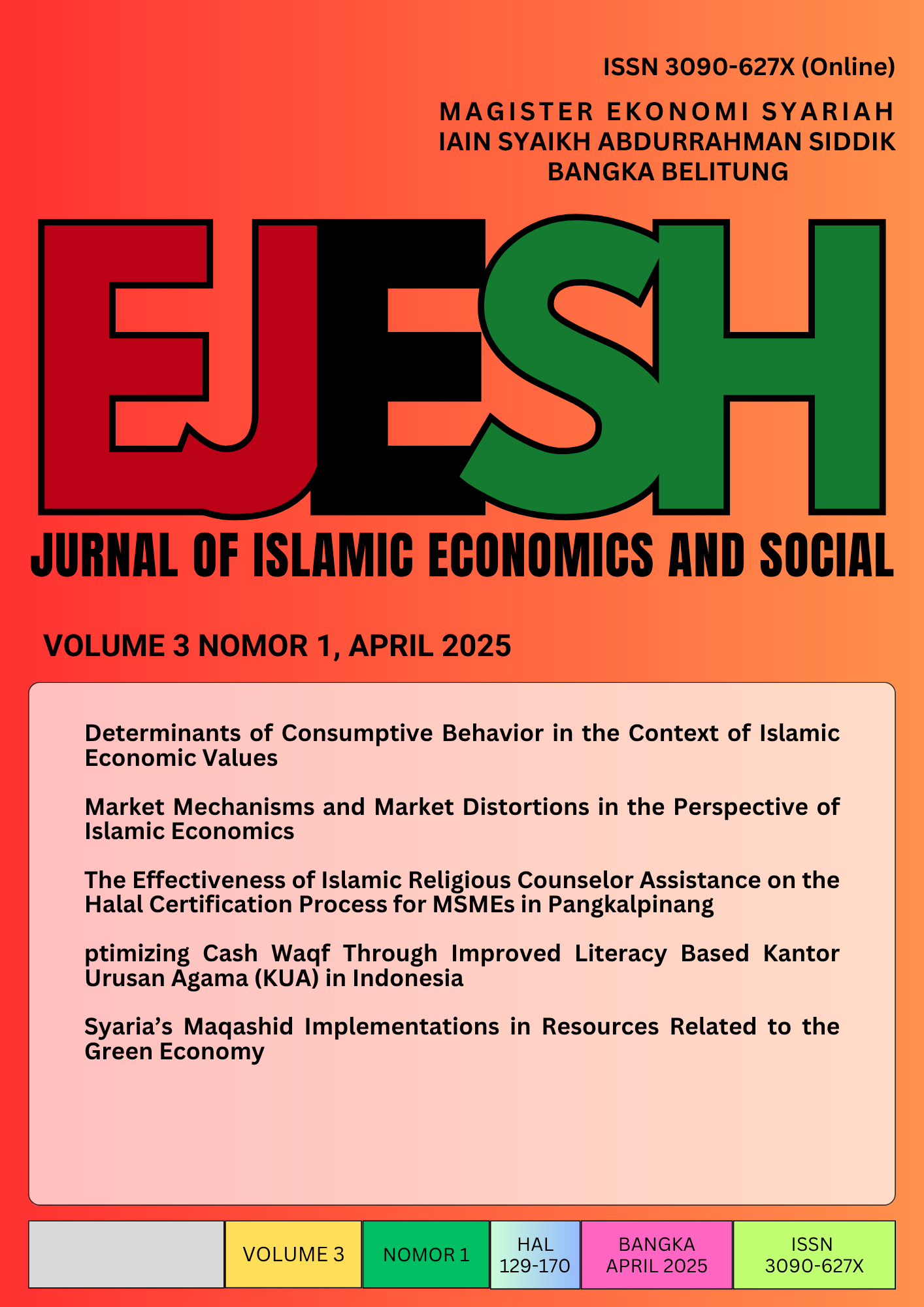The Effectiveness of Islamic Religious Counselor Assistance on the Halal Certification Process for MSMEs in Pangkalpinang
Abstract
The influence of religion is significant in various dimensions of human existence, particularly in economic contexts. Religious teachings frequently provide a framework for believers, influencing their pursuit of a successful and fulfilling life. In this context, Islamic religious counselors possess significant potential to empower communities, especially by aiding small and medium enterprises (SMEs) in navigating the halal certification process. This study seeks to (1) determine the function of Islamic religious counselors in supporting MSMEs in Pangkalpinang during the halal certification process; (2) analyze the obstacles encountered in the assistance process; and (3) develop strategies to enhance the effectiveness of halal certification support for MSMEs. This research utilizes a qualitative methodology, specifically a case study approach, incorporating interviews with Islamic religious counselors in Pangkalpinang City. The findings indicate that Islamic religious counselors play a crucial role as facilitators, educators, and motivators within the halal certification process. Nonetheless, the effectiveness of the guidance encounters obstacles, including a limited number of counselors, varying levels of technical understanding among SMEs, and inadequate resource support. This study identifies the necessity for ongoing training for Islamic religious counselors, promotes enhanced collaboration across sectors (including local government, BPJPH, and halal certification support institutions), and advocates for comprehensive halal awareness and literacy campaigns targeted at SMEs. The proposed enhancements aim to streamline the halal certification process, thereby increasing accessibility and bolstering the competitiveness of sharia-based SMEs on both local and national scales.










.png)

